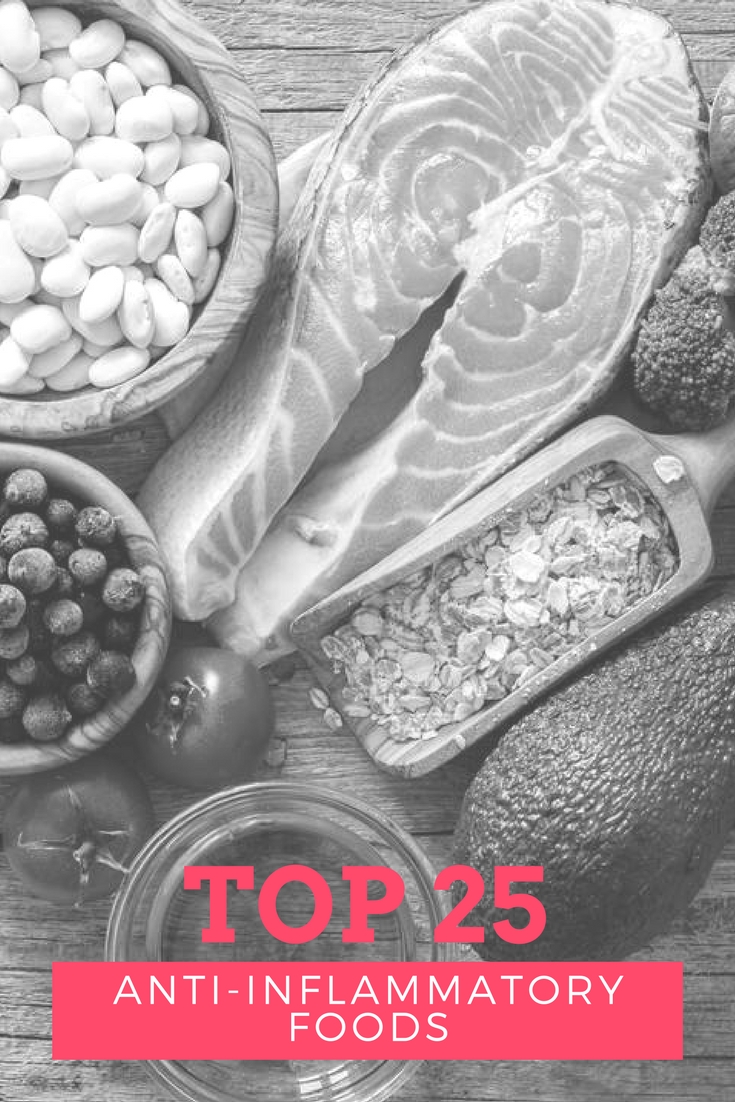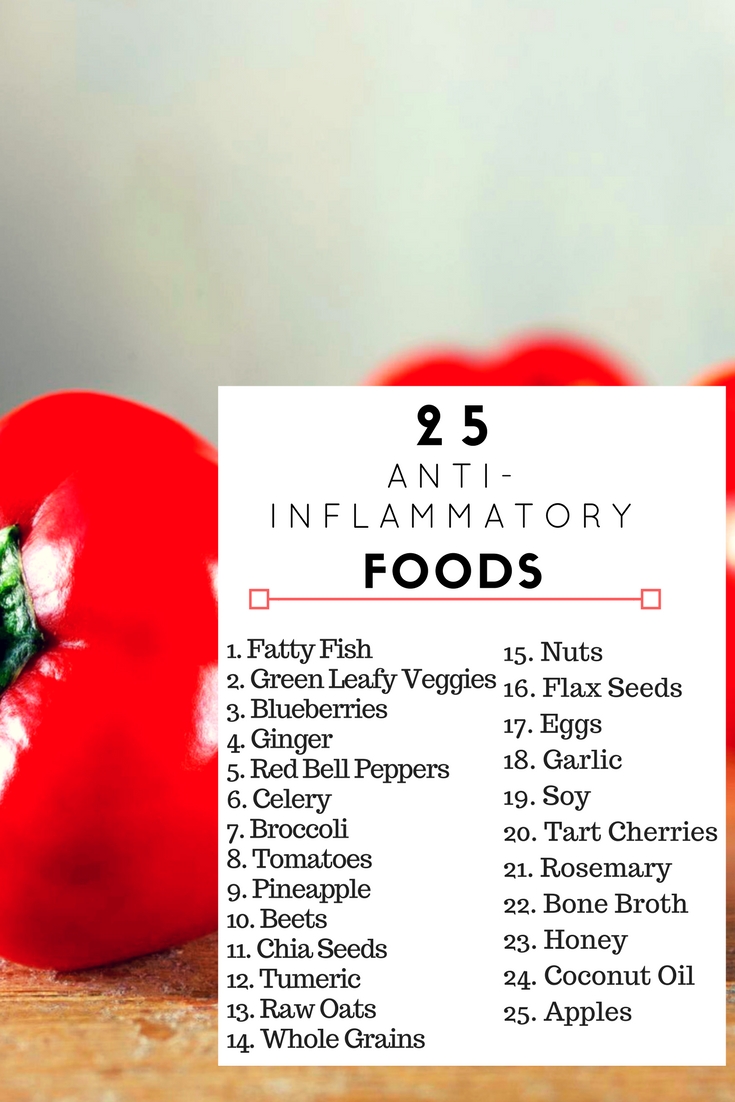
Hey, guys! I have to start today’s post by saying thank you to you guys! You all have been so engaged and curious about my decision to start shifting to an anti-inflammatory diet. In fact, so many of you have asked me questions about it via DM on instagram that I’ve decided to dedicate an entire post to it. Before we dig in, I want to cover 2 things. First, I am not an expert. In fact, I know next to nothing about anti-inflammatory diets. I am simply beginning my research on what it is. But, I want to share what I learn as I learn it with you all. Secondly, I want to explain why I am even on this crazy anti-inflammatory diet quest.
As most of y’all know by now, I had a hysterectomy about a year ago. I haven’t written a full post on it, but will soon – so stay tuned! Anyway, since my hysterectomy last year, I have continued to have pretty severe lower abdominal pain. After seeing several specialists, we’ve discovered that my connective tissue near my bladder is super inflamed. There are lots of fancy names for this, but that’s the gist. And, this seems to be what’s causing frequent and sometimes unbearable pain. So, in additional to taking a medication to help, my doctor suggested I pursue an anti-inflammatory diet. And, the first thing he suggested was giving up caffeine.
DID YOU KNOW: A STARBUCKS DECAF COFFEE HAS MORE CAFFEINE IN IT THAN A REGULAR COFFEE AT DUNKIN DONUTS, 7 ELEVEN, OR THE GROCERY STORE?!?
So, my first step was following the doctor’s orders and giving up caffeine. After starting to do some research on this I’ve found some conflicting results. It appears that yes, coffee can cause inflammation. However, there have also been studies showing caffeine leads to longevity of life, too. It’s a bit confusing so I’m going to continue researching this one. If you have any information about this, I’d love to hear it!
So before we get to what an anti-inflammatory diet is, we should probably know what inflammation is, right? This month Shape magazine happened to have an entire article dedicated to inflammation and anti-inflammatory diets. They begin by stating that a certain amount of inflammation can be good for us. Inflammation is “what happens when your immune system sends out white blood cells…to attack invading viruses, bacteria, or toxins.” It’s two phases – cellular destruction and cellular resolution. Good inflammation for example is redness around a wound or when you feel pain or heat.
The problem comes in when those two systems – cellular destruction and cellular resolution – become unbalanced. And how do they get unbalanced? Well, according to the article in Shape, “sugars, refined grains, and saturated fat can also trigger an inflammatory immune response.” And, lucky for us Americans, the Western diet is chalk full of sugars, refined grains and saturated fat. Additionally, the traditional Western diet (i.e. processed foods) is very low in fruits and nonstarchy vegetables, which help to reduce the inflammatory response.
DID YOU KNOW?
- INFLAMMATION CAUSES/CONTRIBUTES TO THE FOLLOWING: osteoarthritis, rheumatoid arthritis, heart disease, alzheimer’s disease, parkinson’s disease and sometimes cancer.
- A FIBER-RICH DIET REDUCES INFLAMMATION: it’s recommended you eat at minimum of 25 grams of fiber per day (whole grains, fruits, vegetables)
- LIMIT SATURATED FATS: limit SF to 10% of your diet (I’ve also been reading that reducing your red meat intake to once a week is recommended)
- EAT FOODS RICH IN OMEGA-3 FATTY ACIDS: this reduces inflammation; opt for foods like walnuts, flax and cold-water fish like salmon, oysters, trout, etc.
- EAT FISH 3X PER WEEK
- USE OILS WITH HEALTHY FATS: EVOO, coconut, and canola are the best for anti-inflammatory
- AVOID PROCESSED AND REFINED SUGARS
- MINIMIZE TRANS FATS
So what is an anti-inflammatory diet? I had the same question. Basically, it’s a diet that is high in fiber as fiber reduces inflammation. So think foods such as fish, nuts, fruits, veggies, whole grains, etc. If you are on a Mediterranean diet, it’s very similar! In fact, there isn’t one specific “anti-inflammatory diet” out there, but the Mediterranean diet comes as close as possible.
Also, if you’re curious to read more in depth about fiber, click here. A high-fiber diet still felt like a broad definition to me. So, I looked up the top 25 foods for an anti-inflammatory diet and listed them below. Having a visual and knowing what I need to eat helps me prep my daily meals.

I also gleaned 5 helpful tips from the “How to Eat Now” article in Shape Magazine. Since there isn’t one specific diet program, these 5 tips will help you to create a diet and lifestyle based around anti-inflammatory foods. Paraphrased from the article:
FIVE HELPFUL TIPS
- TWO THIRDS OF YOUR PLATE SHOULD BE NON-STARCHY VEGGIES
- LIMIT ADDED SUGAR AND SWEET DRINKS
- EAT FATTY FISH OR TAKE OMEGA-3 SUPPLEMENTS
- ELIMINATE PROCESSED FLOUR/WHITE FLOUR AND LIMIT FLOUR-BASED FOODS
- BE SELECTIVE WITH YOUR FATS (opt out of butter and corn oils and go for coconut oil instead!)
Okay, this sums it up for today! I will continue to research and find recipes I love and will definitely be sharing it with you. In the meantime, if you have any helpful tips, send them my way!




